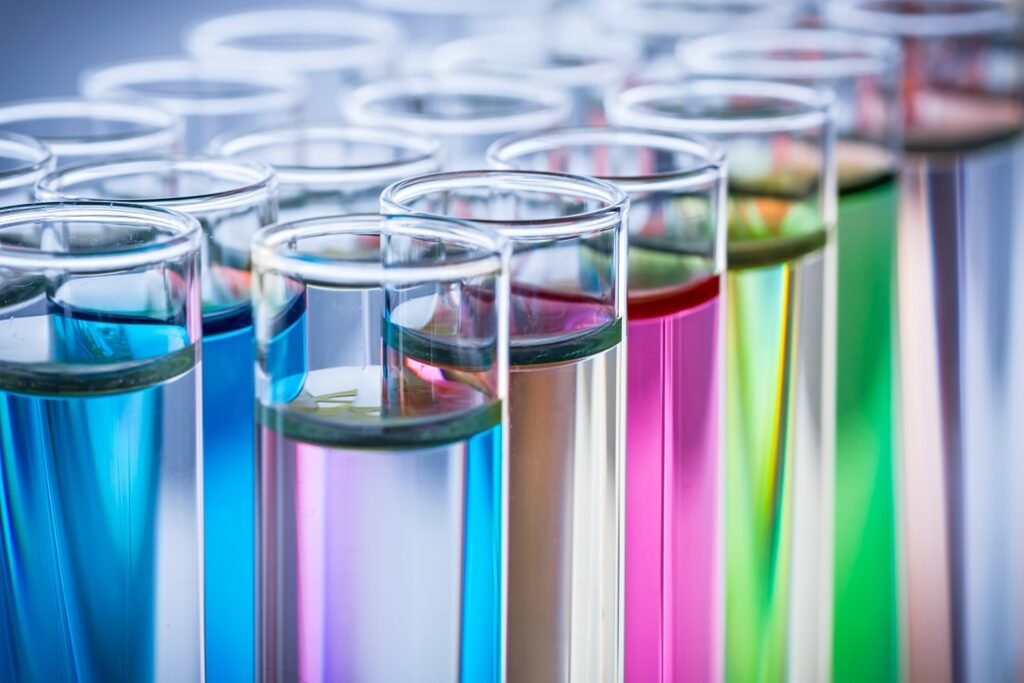On August 29, 2024, Vietnamese Drug Crime Investigation Police Department of the Ministry of Public Security, in collaboration with Vietnam Chemicals Agency (Vinachemia) functioning under the Ministry of Industry and Trade (MOIT), held a seminar titled "Training Session on the Control of Various Legitimate Activities in Relation to Narcotics" in Hanoi. The main purpose of the seminar was to provide information and explain the legal provisions regarding the import, export, manufacture, sale, transport, and storage of industrial precursors with a risk of being misused for manufacturing illegal synthetic narcotics. Nearly 100 companies with many operating in Hanoi attended the event, being involved in the import, export, manufacture, sale, storage, and/or transport of industrial precursors or other chemicals.
The main topics of the training session were as follows.
- Provisions of laws and regulations related to the control of lawful activities related to narcotics
- Issues associated with legitimate narcotics-related activities in the industrial sector
- Issues associated with legitimate narcotics-related activities in Customs
- Answers to questions from companies
Current status of legitime activities related to narcotics
At the seminar, a representative from the Drug Crime Investigation Police Department first explained the current situation in Vietnam with regard to item 1 as listed above. In Vietnam, more than 1,000 enterprises are engaged in lawful activities that have some connection to narcotics. However, most of narcotic precursors are imported from abroad, since only HCl and H2SO4 can be produced in Vietnam. Under current Vietnamese legal provisions, it is allowed to import, export, manufacture, and sell precursor substances. However, to do so, companies must apply for licenses from the competent authorities. In addition, the use of these precursors for the manufacturing/formulating narcotics is strictly prohibited. However, in Vietnam, many criminals are using various types of precursors to manufacture synthetic narcotics. In addition, there have been many recent cases of violations involving foreign companies (mainly, Chinese and Taiwanese companies).
Legal provisions for the control of precursor substances
The legal framework for the control of precursors includes the Law on Chemicals (06/2007/QH12), the Law on Narcotics Control (73/2021/QH14), the Law on Customs (54/2014/QH13), the Law on Trade Control (05/2017/QH14), and various regulations that are subordinate to these laws. Currently, the list of precursor substances is set forth as List IV of Decree 57/2022/NĐ-CP, which defines 60 precursor substances (Groups 1 and 2). And the competent organizations for these substances are the Ministry of Industry and Trade (39 substances), the Ministry of Public Security (13 substances), and the Ministry of Health (8 substances).
It is noteworthy that most precursors that are produced and/or sold by private companies are industrial precursors controlled by MOIT and Vinachemia, many of which are Group 2 precursors. This group also includes various solvents that are used in industrial production processes (acetone, methyl ethyl ketone, toluene, methylamine, etc.). Here, it is important to note that industrial precursors also include "mixtures containing precursors as components" as per provisions of Decree 113/2017/NĐ-CP.
Items to which companies should pay attention in managing precursors
During the seminar, a number of points to note were presented by the competent authorities to participant companies. These points are summarized as follows.
- Companies that manufacture and/or sell industrial precursors must apply for the issuance of a "license for the manufacture and sale of chemicals that meets requirements as determined by the (national or municipal) Department of Trade and Industry" in accordance with the provisions of Decree 113/2017/NĐ-CP, the implementing regulations of the Law on Chemicals. Such companies may only manufacture and sell precursors of the type and quantity for which they have obtained a license.
- Since Vinachemia is mandated to review documents submitted by importers, companies applying for an import license shall submit the aforementioned application documents with sufficient time allowance. The Vinachemia is supposed to review the submitted applications within 7 working days. Documents to be submitted/reviewed include Safety Data Sheets (SDS), Annual Reports, and license for manufacturing and marketing that meet relevant requirements. Once an import license has been issued, the Vinachemia will need to send the application to the PEN online system (https://pen.incb.org/), through which the security agencies of the country from which the goods are notified. This is to obtain review and authorization for the export of the goods.
- Companies are required to include the import license number of the precursor substance when preparing customs declarations. The purpose is to "avoid misclassification without recognition by the customs classification system". For instructions on how to prepare a customs declaration, see Annex I to Circular 39/2018/TT-BTC.
- Companies must ensure that their Safety Data Sheets (SDS) contain complete and accurate information regarding component industrial precursors.
- The list of precursors established by the government will be revised and augmented at least once every two years in accordance with international conventions.
- Companies shall keep logbooks recording their activities with respect to the manufacture and sale of industrial precursors and shall record information regarding the buyer, such as the company name, its address, and the purpose of use. The seller company may also be jointly liable if the customer who purchased the precursor substance (the buyer company) misuses said precursor substance to manufacture and sell narcotics.
In the following, outline of item “4. Responses to questions from participant companies” as above listed.
 Report: Seminar on Control of Industrial Precursors in Vietnam
Report: Seminar on Control of Industrial Precursors in Vietnam 

























